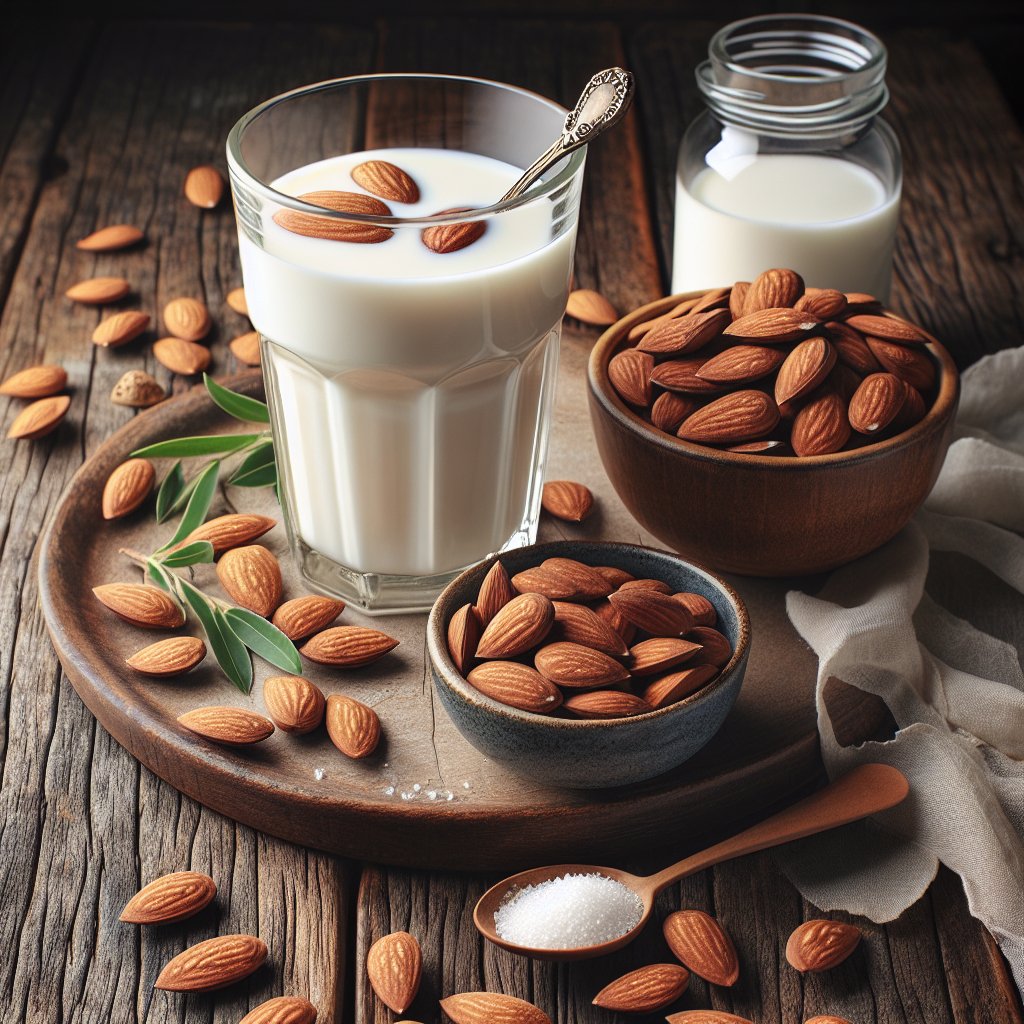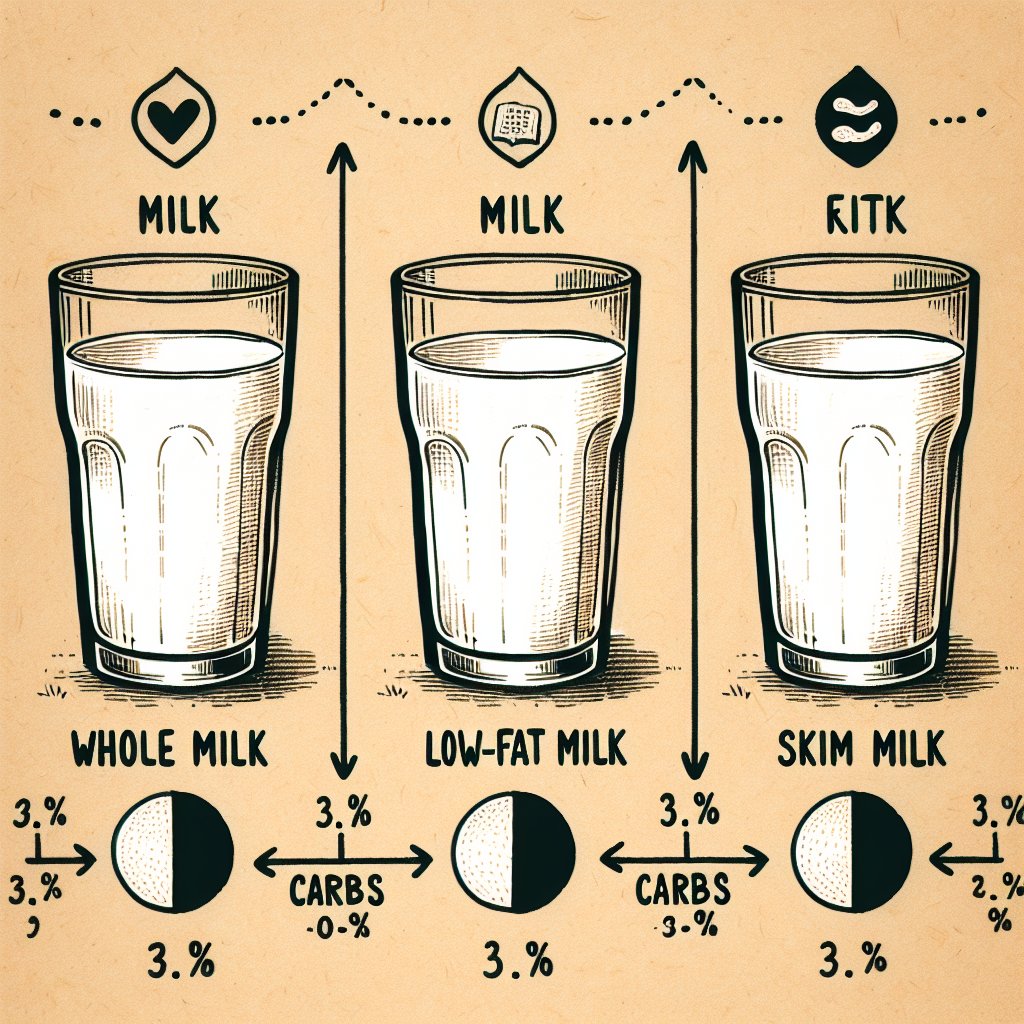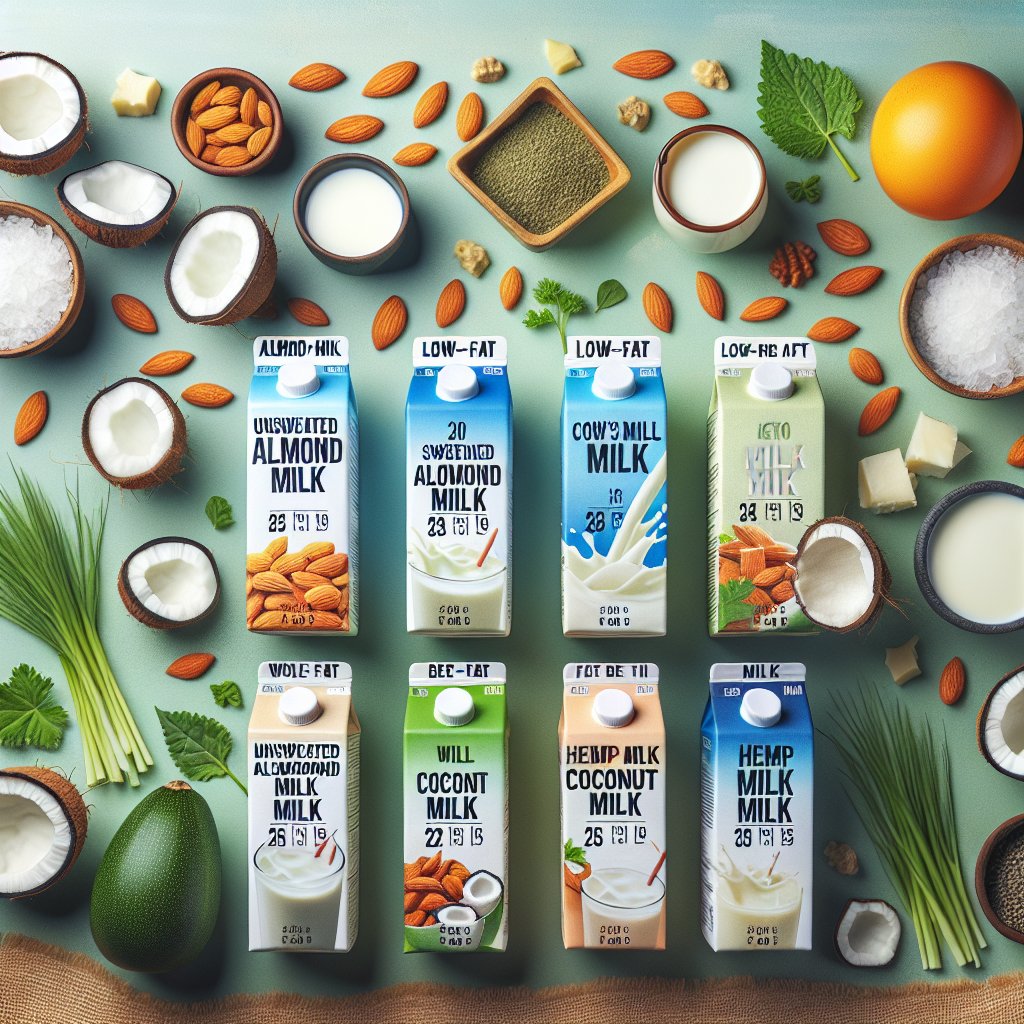Unlocking the Keto Secret: Which Kind of Milk Can You Have on Keto? Find Out the Best Choices for Your Ketogenic Diet!
Unlocking the Keto Secret: Which Kind of Milk Can You Have on Keto? Find Out the Best Choices for Your Ketogenic Diet!
Welcome to the ultimate guide for unlocking the keto secret and finding out which kind of milk you can have on a ketogenic diet. Whether you’re a seasoned keto enthusiast or just starting out on your keto journey, understanding the importance of choosing the right type of milk for keto is crucial. In this article, we will delve into the popularity of the ketogenic diet and shed light on the best milk options to complement your keto lifestyle.
The ketogenic diet has been surging in popularity in recent years, and for good reason. Research has shown that the ketogenic diet can be highly effective for weight loss and improving overall health. By drastically reducing carbohydrate intake and replacing it with healthy fats, the body enters a state of ketosis, where it becomes incredibly efficient at burning fat for energy. This metabolic state not only aids in weight loss but also offers a myriad of health benefits, including improved blood sugar control, enhanced mental clarity, and increased energy levels.
Amidst the growing interest in the ketogenic diet, the question of which kind of milk is suitable for keto has become increasingly relevant. Many individuals rely on milk as a staple in their diet, whether for their morning coffee or for adding creaminess to recipes. However, not all types of milk align with the low-carb, high-fat requirements of the keto diet.
The Importance of Choosing the Right Type of Milk for Keto
When it comes to the ketogenic diet, the type of milk you choose can significantly impact your macronutrient intake. Traditional cow’s milk, for example, contains lactose, a natural sugar that can elevate blood sugar levels and hinder ketosis. On the other hand, certain milk alternatives can offer a keto-friendly solution, providing a rich source of healthy fats and minimal carbohydrates.
Understanding the macronutrient profile of different milk options is essential for maintaining ketosis and ensuring that your dietary choices align with the principles of the ketogenic diet. By selecting the right type of milk, you can enjoy your favorite beverages and recipes while staying in ketosis and reaping the benefits of this metabolic state.
As we continue our journey to uncover the best milk choices for the ketogenic diet, let’s explore the specific qualities of various milk options and their compatibility with the keto lifestyle.

Unlocking the Keto Secret: Which Kind of Milk Can You Have on Keto? Find Out the Best Choices for Your Ketogenic Diet!
Types of Milk Allowed on Keto
So, you’ve decided to take the plunge into the world of keto. You’re committed to making healthier choices and embracing a low-carb, high-fat lifestyle. But what about milk? Can you still enjoy a creamy, satisfying glass of milk while following a ketogenic diet? The answer is yes, and one of the best options is unsweetened almond milk.
Low Carb and Calorie Content of Almond Milk
When it comes to keto-friendly milk alternatives, almond milk is a clear winner. It’s incredibly low in carbs, with only 1-2 grams of carbohydrates per cup compared to the 12 grams found in cow’s milk. This makes it an excellent choice for those looking to maintain ketosis, where the body uses fat for fuel instead of carbohydrates.
Additionally, unsweetened almond milk is also low in calories, making it a great option for individuals aiming to lose or maintain weight on the keto diet. A one-cup serving typically contains a mere 30-40 calories, which is significantly lower than the 80-150 calories in one cup of skim or whole milk.
The low carb and calorie content of unsweetened almond milk make it a suitable and satisfying option for those following a ketogenic diet. It’s a versatile choice that can be enjoyed on its own, used in cooking and baking, or added to your morning coffee without derailing your keto goals.
So, if you’re looking for a milk substitute that won’t kick you out of ketosis and aligns with your weight management objectives, unsweetened almond milk is an excellent choice.
In summary, unsweetened almond milk is a keto superstar, boasting minimal carbs and calories compared to traditional cow’s milk. It’s a no-brainer for those wanting to embrace a ketogenic lifestyle while still enjoying the pleasures of a creamy, delicious beverage.
Next up, we’ll explore the array of nutrients present in this plant-based milk and why it’s a stellar addition to your keto journey.

Nutritional Comparison of Milk Varieties
Let’s dive into the details of cow’s milk varieties to see how they stack up in terms of carb and fat content. This will help us determine the best choices for our ketogenic diet.
Whole Milk
Whole milk contains about 12 grams of carbs per one cup serving, making it the highest in carbs among the different milk types. However, it also provides around 8 grams of fat per cup, which can support the fat intake necessary for a keto diet. The fat content may vary slightly based on the cow’s breed and diet, but overall, it offers a good balance of fat and protein.
Low-Fat Milk
Low-fat milk, also known as 2% milk, has approximately 12-13 grams of carbs per cup, similar to whole milk. The fat content is significantly reduced, with only about 5 grams of fat per cup. While the carb content remains the same as whole milk, the lower fat content may not provide the ideal fat intake desired for a keto diet.
Skim Milk
Skim milk, or non-fat milk, contains roughly 12-13 grams of carbs per cup, akin to whole and low-fat milk. However, the fat content is dramatically decreased, with less than 1 gram of fat per cup. This makes it the least favorable option for individuals following a ketogenic diet due to the significantly lower fat content.
When considering the carb and fat content, whole milk and low-fat milk are closer in their nutritional composition, with whole milk offering a higher fat content. Skim milk, on the other hand, contains minimal fat, making it less suitable for keto followers who rely on a higher fat intake to reach their macronutrient goals.
So, which kind of milk can you have on keto? Whole milk can be a suitable choice for those on a ketogenic diet, as the higher fat content aligns better with the macronutrient distribution of the diet, providing a good source of beneficial fats while keeping carb levels in check.

Impact of Milk on Ketosis
When it comes to following a ketogenic diet, the choice of milk can have a significant impact on your ketosis and weight loss goals. Let’s delve into how different types of milk can affect your keto journey and which options are the best choices for your ketogenic lifestyle.
Full-Fat Dairy Milk
Full-fat dairy milk is a classic choice that many keto enthusiasts prefer due to its richness and creaminess. It contains a higher fat content and lower lactose levels compared to skim or low-fat milk. Research has shown that full-fat dairy products, such as whole milk, can contribute to improved weight management and may not negatively affect cardiovascular health as once thought. Additionally, the fats in full-fat dairy can aid in keeping you feeling satiated, which is essential for staying on track with your keto diet.
Almond Milk
Almond milk is a popular non-dairy alternative for those following a ketogenic lifestyle. It is low in carbohydrates and calories, making it a suitable option for individuals looking to minimize their carb intake. Research suggests that incorporating almond milk into your diet may contribute to weight management and offer heart-healthy benefits due to its unsaturated fat content.
Coconut Milk
Coconut milk is another excellent choice for individuals on a keto diet. It contains significant amounts of medium-chain triglycerides (MCTs), which are known for their potential to enhance ketone production and boost metabolic rate. Studies have indicated that MCTs may support weight loss efforts by increasing feelings of fullness and promoting greater energy expenditure.
Oat Milk and Skim Milk
On the other hand, oat milk and skim milk are higher in carbohydrates compared to the aforementioned options, making them less favorable choices for those aiming to achieve and maintain ketosis. While they may still have their nutritional benefits, the higher carbohydrate content in these milks could potentially hinder your progress on a ketogenic diet.
Takeaway: Choosing the right type of milk is crucial for maintaining ketosis and achieving your weight loss goals on a ketogenic diet. Full-fat dairy milk, almond milk, and coconut milk are among the best choices for individuals following a keto lifestyle, as they offer favorable fat and carb profiles that align with the principles of the ketogenic diet.

Best Practices for Choosing Keto-Friendly Milk
One of the key components of a successful ketogenic diet is choosing the right kind of milk. While traditional cow’s milk is a no-go due to its high carbohydrate content, there are several keto-friendly milk options available in the market. When it comes to selecting the best milk for your keto lifestyle, it’s crucial to pay close attention to the ingredients, particularly the presence of added sugars.
Look for Unsweetened Varieties
When choosing a milk option for your ketogenic diet, it’s essential to prioritize unsweetened varieties. Many commercially available milk products, including almond, coconut, and soy milk, come in sweetened and unsweetened versions. Opting for unsweetened variations is paramount as added sugars can easily derail your efforts to stay in ketosis.
According to a study published in the American Journal of Clinical Nutrition, the consumption of added sugars, especially in liquid form, has been linked to an increased risk of obesity and metabolic disorders. Furthermore, added sugars can spike insulin levels, leading to a halt in the fat-burning process, which is counterproductive to the goals of a ketogenic diet.
By choosing unsweetened milk options, you not only steer clear of unnecessary carbohydrates but also minimize the risk of consuming hidden sugars that could hinder your progress on the keto journey.
Check the nutrition label to ensure that the milk you select is free from added sugars. Many unsweetened dairy alternatives contain minimal carbs, making them an ideal choice for those following a ketogenic lifestyle.
It’s important to note that even natural sugars found in certain milk alternatives, such as lactose in dairy milk, should be considered when calculating your daily carbohydrate intake. However, unsweetened options typically contain significantly lower amounts of natural sugars, aligning them more closely with the requirements of a ketogenic diet.
Ultimately, when shopping for milk, scanning the ingredient list for added sugars and opting for unsweetened varieties will help you make the best choice for your keto-friendly beverages.
Delicious Recipes with Keto-Friendly Milk
Hey there, keto enthusiasts! Are you ready to explore some delicious and keto-friendly recipes that incorporate alternative milk options like coconut milk and hemp milk? These recipes not only align with your ketogenic lifestyle but also offer a creamy and flavorful twist to your dishes. Let’s dive into the world of culinary creativity with these fantastic recipes!
Creamy Coconut Milk Smoothie Bowl
Start your day on a refreshing note with a creamy coconut milk smoothie bowl. Here’s what you need:
- 1 cup coconut milk
- 1/2 an avocado
- 1/2 cup spinach
- 1/2 cup frozen berries
- 1 tablespoon chia seeds
- A dash of vanilla extract
- Toppings of your choice: shredded coconut, sliced almonds, and fresh berries
Instructions:
1. In a blender, combine the coconut milk, avocado, spinach, frozen berries, chia seeds, and vanilla extract. Blend until smooth and creamy.
2. Pour the smoothie into a bowl and top it with shredded coconut, sliced almonds, and fresh berries.
3. Enjoy the refreshing and nutritious goodness of this creamy coconut milk smoothie bowl!
Hemp Milk Chia Pudding
Indulge in a delightful and satisfying dessert with this hemp milk chia pudding. Gather these ingredients:
- 1 1/2 cups hemp milk
- 1/4 cup chia seeds
- 1 teaspoon vanilla extract
- 1 tablespoon low-carb sweetener of your choice (optional)
- Fresh berries for topping
Instructions:
1. In a bowl, mix the hemp milk, chia seeds, vanilla extract, and sweetener (if using). Stir well to combine.
2. Let the mixture sit in the refrigerator for at least 2 hours or overnight, allowing the chia seeds to gel and thicken the pudding.
3. Serve the chilled hemp milk chia pudding with a generous topping of fresh berries for a delightful keto-friendly treat.
These recipes not only introduce variety to your keto diet but also showcase the versatility of coconut milk and hemp milk in creating delicious, wholesome dishes. Whether it’s a refreshing smoothie bowl or a satisfying chia pudding, these recipes are bound to elevate your keto culinary experience. So, go ahead and have fun experimenting with these delightful creations in your kitchen!
Stay tuned as we continue to unlock more delightful keto secrets in our upcoming articles!
Addressing Common Concerns and Misconceptions
When it comes to following a ketogenic diet, there are several misconceptions and myths surrounding the consumption of dairy, particularly milk. Let’s address some of the common myths and concerns to help you make informed decisions about which kind of milk you can have on keto.
Myth 1: All Dairy is Off-Limits on Keto
One prevalent misconception about the keto diet is that all dairy products, including milk, are off-limits. However, this is not entirely accurate. While it’s true that traditional cow’s milk contains lactose, a natural sugar that can impact ketosis, there are still options that fit within the keto guidelines.
The idea that all dairy is off-limits on keto might have stemmed from the high carbohydrate content in regular cow’s milk. According to the USDA National Nutrient Database, a one-cup serving of whole milk contains approximately 12 grams of carbohydrates, primarily in the form of lactose. However, if managed within your daily carb limit, there is room for incorporating certain types of milk into your ketogenic lifestyle.
When considering the kind of milk suitable for keto, it’s essential to look for lower carbohydrate and higher fat options to support ketosis. This leads to the next common myth surrounding milk and the ketogenic diet.
Myth 2: Full-Fat Dairy is Unhealthy
Another misconception that has circulated is the belief that full-fat dairy products, including whole milk, are unhealthy. Contrary to this notion, research published in the European Journal of Nutrition suggests that full-fat dairy consumption is not associated with an increased risk of cardiovascular disease or stroke. In fact, full-fat dairy products can contribute to feelings of satiety and help maintain stable blood sugar levels, which aligns with the objectives of the keto diet.
By choosing full-fat dairy options, such as whole milk or cream, you can benefit from the higher fat content, which supports the macronutrient profile of the ketogenic diet. The increased fat content in full-fat dairy products can also aid in the absorption of fat-soluble vitamins present in milk, such as vitamins A, D, and K, providing added nutritional value.
It’s important to note that individual tolerance to dairy can vary, so if you have lactose intolerance or any dairy sensitivities, it’s advisable to opt for lactose-free or dairy alternatives to avoid any adverse effects. Understanding your body’s response to different dairy products is key to finding the most suitable options for your ketogenic journey.
Now that we’ve debunked these myths, let’s delve into the best choices of milk for your ketogenic diet.


